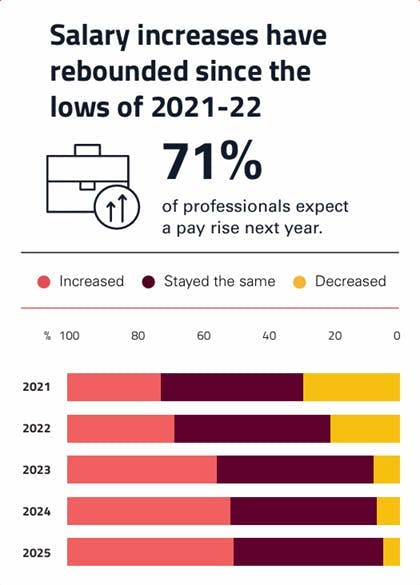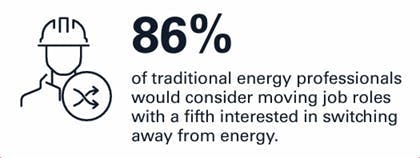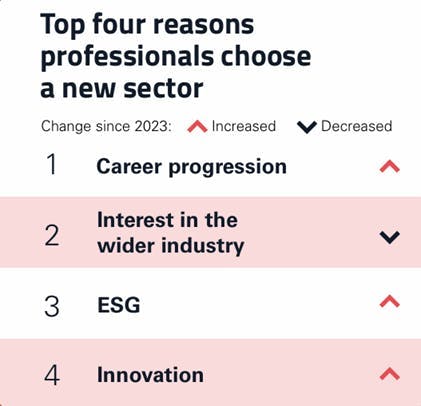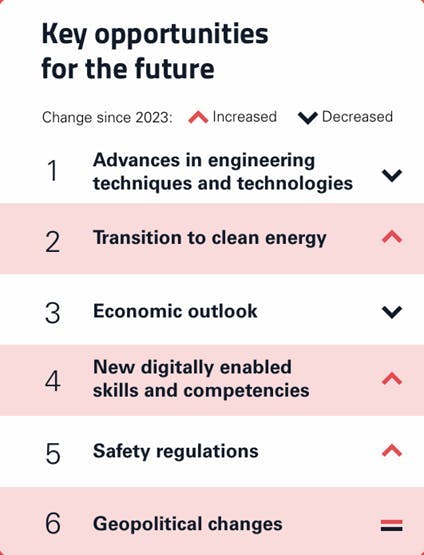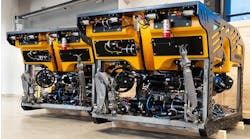By Janette Marx, Airswift; and Margie Harris, Tellurian Inc.
Just a few years ago, the No. 1 opportunity for the traditional energy sector was developments in engineering techniques and technology. But respondents to this year’s Global Energy Talent Index (GETI) say the energy transition is now equally as powerful.
The past five years have seen the energy transition accelerate with pressure mounting on the industry to become cleaner, safer, more efficient and more technologically advanced regardless of the political climate or economic environment.
This has been reflected in pay. In the GETI 2025 trends report, 48% of renewables professionals reported receiving a pay rise, up from 35% in 2021. This compares favorably to reports made by oil and gas and petrochemicals professionals, 50% of whom said they had received a pay rise in the past 12 months.
While oil and gas industry pay continues to be significantly higher, this gap is slowly decreasing. In 2021, oil and gas salaries were 25% higher on average than renewables, but today that figure has dropped to 16%. Oil and gas salaries and day rates have stayed the same in the past 12 months, while those across renewables have continued to climb, underpinned by ongoing investment.
Recruitment across traditional energy also appears slower compared to 2024. This year professionals were approached 5.8 times on average about positions outside of their company compared to six times the previous year.
With the pay gap slowly closing and fewer job opportunities being received, could the allure of renewables and technology and its potential to offer career progression see more offshore energy professionals move on land?
A change in scenery
Traditional energy professionals are renowned for having transferable skills. Every downturn has seen large portions of the workforce turn their hands to new job roles and opportunities, upskilling themselves in the process. For example, offshore workers could be found working on large infrastructure projects, in manufacturing or in maritime and shipping. Now, as traditional energy increasingly converges with sustainability and technology, the breadth of possibility widens still.
Respondents to the GETI 2025 see this potential, with two-fifths of traditional energy respondents saying they could see themselves working in another energy sector. One-fifth would consider moving outside of energy altogether with roles in technology as the most popular choice. According to the report, professionals aged 25-34 are most likely to consider switching to another role, with opportunities for career progression (38%) and interest in the wider industry (15%) the most cited reasons.
Competitiveness, resilience and career progression
If traditional energy companies are to remain competitive and resilient, a greater focus on internal talent development through training and mentorship will help managers to keep career opportunities fresh. At present, only 15% of middle management positions are filled internally on average. Too often, internal candidates are rejected for not having exactly the right mix of skills and capabilities, but in time this could be overcome with better workforce planning.
To increase internal hiring and boost retention, line managers should work with top management and HR to build career opportunities from within, supporting employees to achieve their career maximum at that organization rather than be tempted away by career development elsewhere. For example, GETI 2025 respondents highlight the need for increasing digitally enabled skills and competencies; this would build company resilience and it could offer new career development opportunities.
Additionally, agility is important. While the oil and gas industry has been somewhat slow to evolve, the pace is quickening as pressure mounts to decarbonize.
Peter Cappelli, a leading thinker on HR, says the economy can be unpredictable when it comes to what jobs will be “hot.” Job roles are being regularly re-engineered; a graduate might pick a major only to find upon graduation five years later that the industry has moved on. Employees that are given opportunities to develop a broad skillset that can be deployed across a range of settings build company resilience and adaptability while also satisfying employees’ want for career progression. This culture of opportunity should also extend to interns and new graduates; many ambitious, well-educated graduates are being overlooked because nobody wants to “break them in.”
Retaining talent has always required a proactive approach, but as industries and skills requirements converge, and the pay advantage that traditional energy has enjoyed for so long begins to disappear, a greater focus on career development will be necessary.
Offshore companies that invest in skills development, create opportunities through internal promotion and keep a pipeline of exciting projects to work on will benefit from a more resilient, flexible and satisfied workforce that can make the most of energy transition opportunities as they arise.

